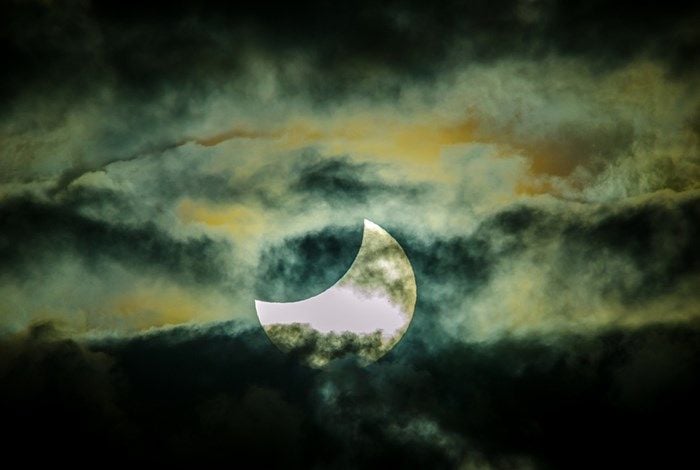Eclipse 2017: In Pursuit of Totality
You’ve made plans, packed bags, obtained glasses. Here’s what to read to fully appreciate this event in all its glory
/https://tf-cmsv2-smithsonianmag-media.s3.amazonaws.com/filer/8f/03/8f03df1f-6212-4470-9f17-8f6cdbf10247/slack-imgs.jpg)
It’s almost Eclipse Day! That means you're (hopefully) about to witness a rare and profoundly mindblowing celestial event: the first solar eclipse whose path of totality spans coast-to-coast in the continental United States since 1918.
When the moon precisely lines up between the Sun and the Earth and darkness descends, you're going to want to know what's going on and why people are so psyched. So if you need a little help brushing up on your eclipse knowledge before this spectacular event, we’ve got you covered.
Here are all the must-reads Smithsonian.com has published this summer on the history of awestruck eclipse chasers, ancient eclipse anxiety, Benjamin Franklin's eclipse satire and more.
Happy eclipsing!
A Brief History of Eclipse Chasers
If you’re getting ready to brave crowds and traffic jams in search of totality, you’re not alone. For thousands of years, eclipse chasers—also known as umbraphiles, coronaphiles, eclipsoholics and ecliptomaniacs—have sought clear skies in which to witness daytime blackouts. “I doubt if the effect of witnessing a total eclipse ever quite passes away,” wrote eclipse-chaser Mabel Loomis Todd in 1887. “The impression is singularly vivid and quieting for days, and can never be wholly lost.”
Benjamin Franklin Mocked Eclipse Astrology to Elevate Science
Founding father Benjamin Franklin once wrote in his journal the awe he felt in the face of a sky-darkening total solar eclipse. Yet in his popular Poor Richard’s Almanack, he mercilessly lampooned the practice of astrological prediction, which claimed to use eclipses to foretell the future. In doing so, he hoped to lead his readers toward the light of a more scientific understanding—and appreciation—for astronomical phenomenon.
What Folklore Tells Us About Eclipses
Throughout history, cultures have viewed the eclipse through varying lenses. Yet most of these interpretations were not good, writes James Deutsch, a curator at the Smithsonian's Center for Folklife and Cultural Heritage. It seems that the descent of sudden darkness has always signified impending doom in one form or another: historic eclipse myths include a monster devouring the sun, a punishment from the gods for human errors, and a prelude to apocalypse.
This New Mexico Petroglyph Might Reveal an Ancient Solar Eclipse
On the other hand, perhaps we shouldn't rush to assume that ancient eclipses were always thought to portend danger and destruction. In New Mexico’s Chaco Canyon, scientists have uncovered a strange petroglyph that looks suspiciously like a solar flare erupting from the sun during a total eclipse. According to the archaeoastronomer who found this strange carving, the image could be a sign that such an event was cause for celebration, rather than fear, by the Pueblo people who made it.
How Eclipse Anxiety Helped Lay the Foundation For Modern Astronomy
Moreover, the widespread fear and unease caused by eclipses throughout history has had some surprising results. For millennia, that eclipse-induced anxiety has spurred ancient star-gazers to get better at eclipse prediction, which generally meant getting better at documentation and math. Their efforts helped lay the mathematical foundation for astronomy. Thanks, eclipses!
This Is the Gear You Need to View the Upcoming Solar Eclipse
An eclipse is an important time to practice sun safety. Lucky for you, Smithsonian has rounded up the best sky-viewing tools to help you avoid eye pain, solar retinopathy and blindness when totality sweeps its path between Oregon and South Carolina. From handheld viewers to telescopes to DIY pinhole projectors, we break down what gear will work best for your eclipse experience.

Enjoy your eclipse viewing in safety and awe!